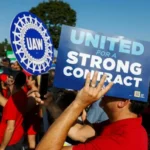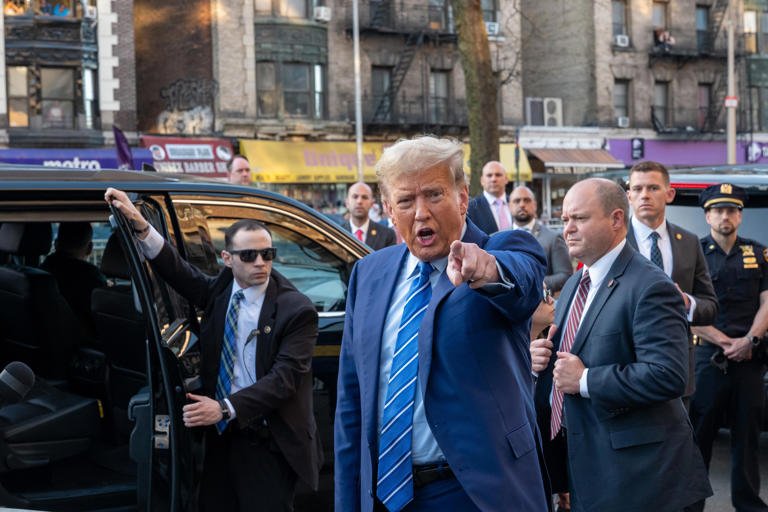With cases involving Donald Trump, abortion bans, battling baristas, homeless camps and scary tattoos, the Supreme Court enters a week packed with arguments that will affect everything from the tumultuous 2024 election to health care, the workplace and policing.
Most notably, the high court will weigh if and when a former president can claim criminal immunity for acts committed while in office as Trump, who is currently on trial for allegedly concealing hush money payments to an adult film actress, fights three additional indictments over his attempts to overturn the 2020 election and his hoarding of classified documents.
But Trump’s broad claim that a former president can’t face criminal charges without first being impeached by the House of Representatives and convicted in the Senate is just one of several high-stakes cases the nine justices will hear this week.
Banning homeless residents from sleeping outside
Illegal blankets?
Justices have been asked to decide if cities can punish people who sleep outdoors. The southern Oregon city of Grants Pass, where winter temperatures fall into the 30s, had cracked down on a homeless encampment by banning tents, blankets and pillows from public parks.
But a federal appeals court ruled that the Constitution’s 8th amendment, which bars cruel and unusual punishment, doesn’t allow criminal charges against people who are sleeping outside when they have nowhere else to go.
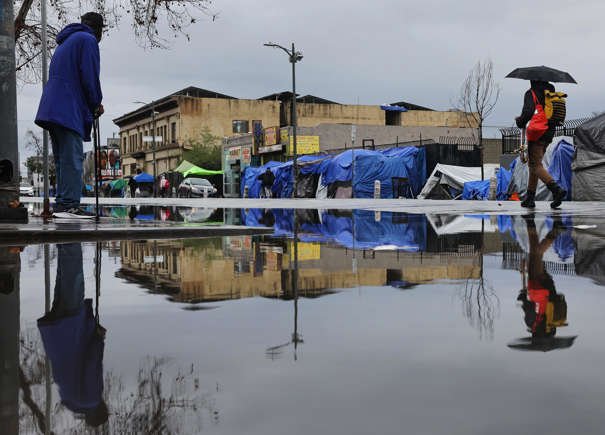
People gather near an encampment of unhoused people in Skid Row as a powerful long-duration atmospheric river storm, the second in less than a week, impacts Southern California on Feb. 6, 2024 in Los Angeles. Skid Row is home to thousands of people who are either experiencing homelessness on the streets or living in shelters.
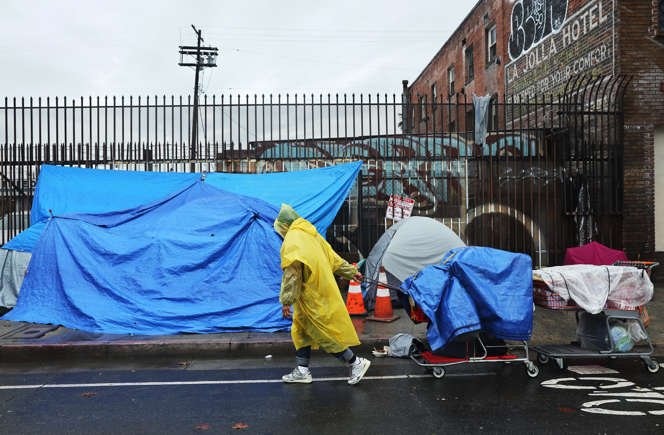
A person walks with carts in the rain near an encampment of unhoused people in Skid Row as a powerful long-duration atmospheric river storm, the second in less than a week, impacts Southern California on Feb. 6, 2024 in Los Angeles.
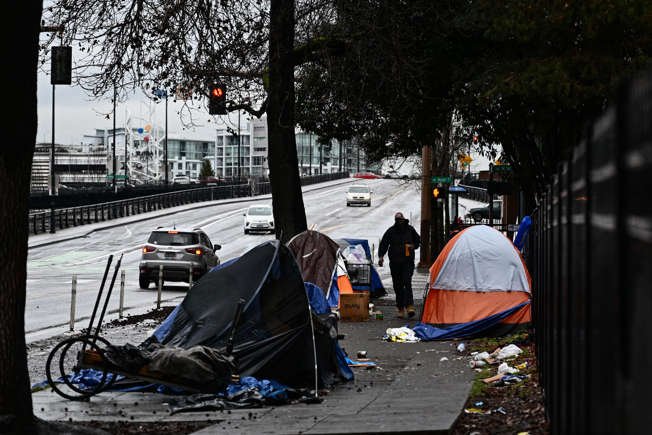
A pedestrian walks past an encampment of tents after crossing Hoyt Street in Portland, Ore. on Jan. 24, 2024.
Gavin Newsom, California’s Democratic governor, joined a host of cities in supporting Grants Pass’ appeal to the high court, writing that the 2018 decision “ties local leaders’ hands.” Governments “need the flexibility to…address immediate threats to health and safety in public places,” Newsom said.
Residents of the Grants Pass homeless camp say the harsh anti-sleeping law was “an effort to push its homeless residents into neighboring jurisdictions” by punishing them “for their existence within city limits.”
A faith-based shelter − the only one in the city of 36,000 − wrote to the court that the number of people using its beds had fallen by 40% since the appeals court ruling prevented enforcement of the public sleeping law.





